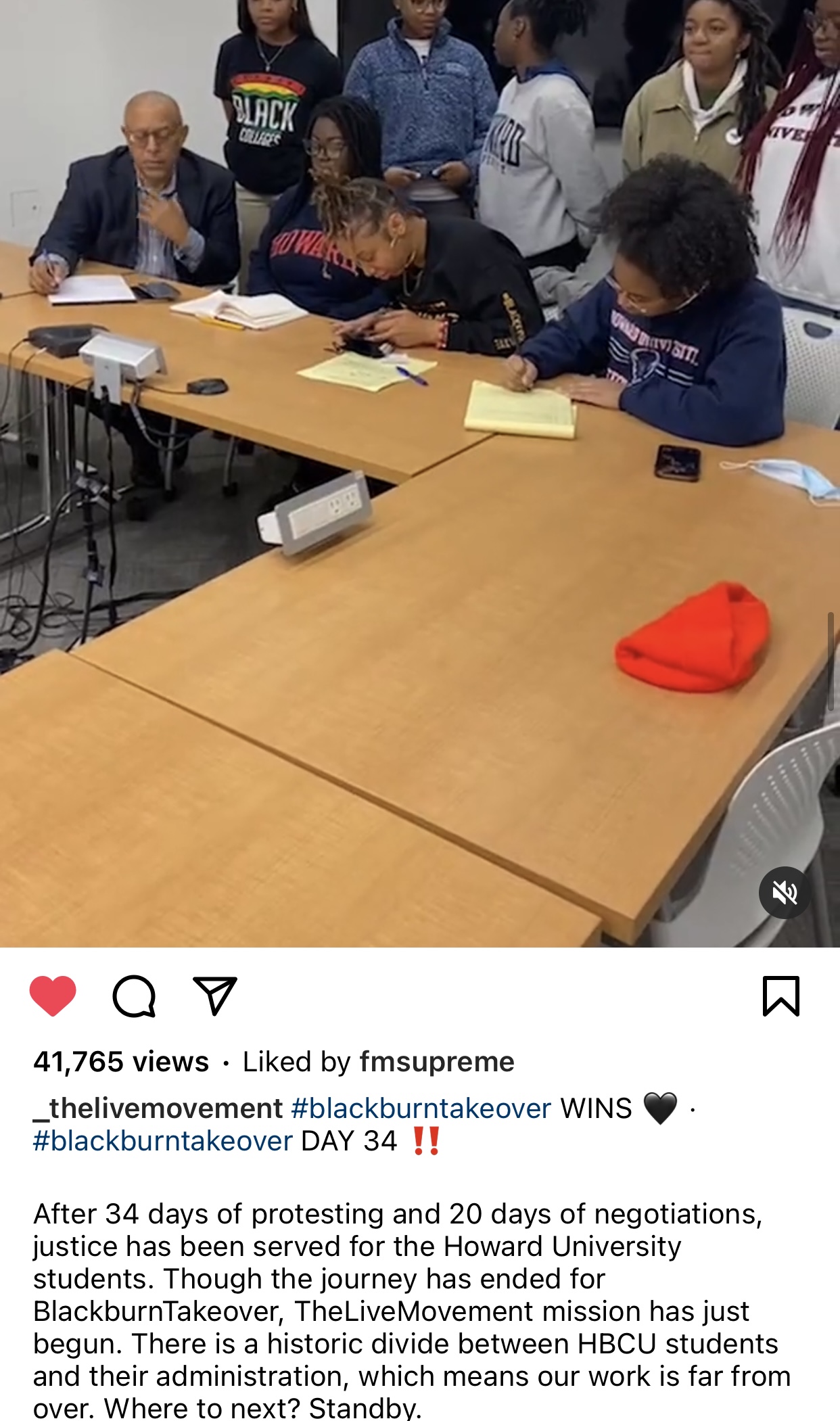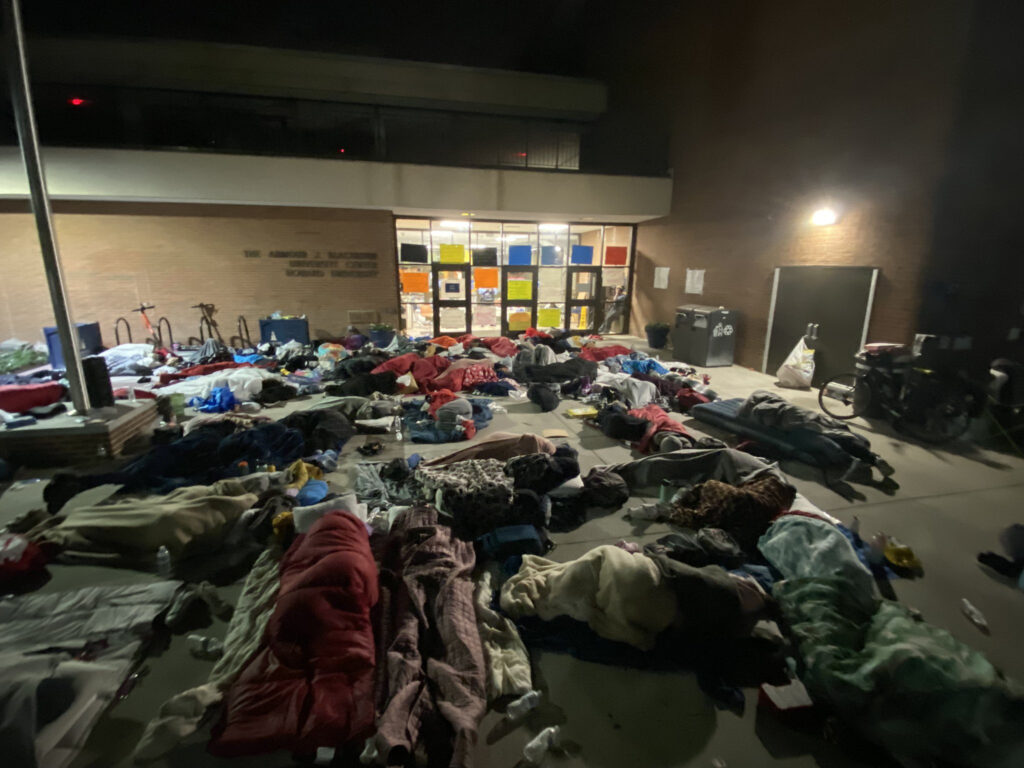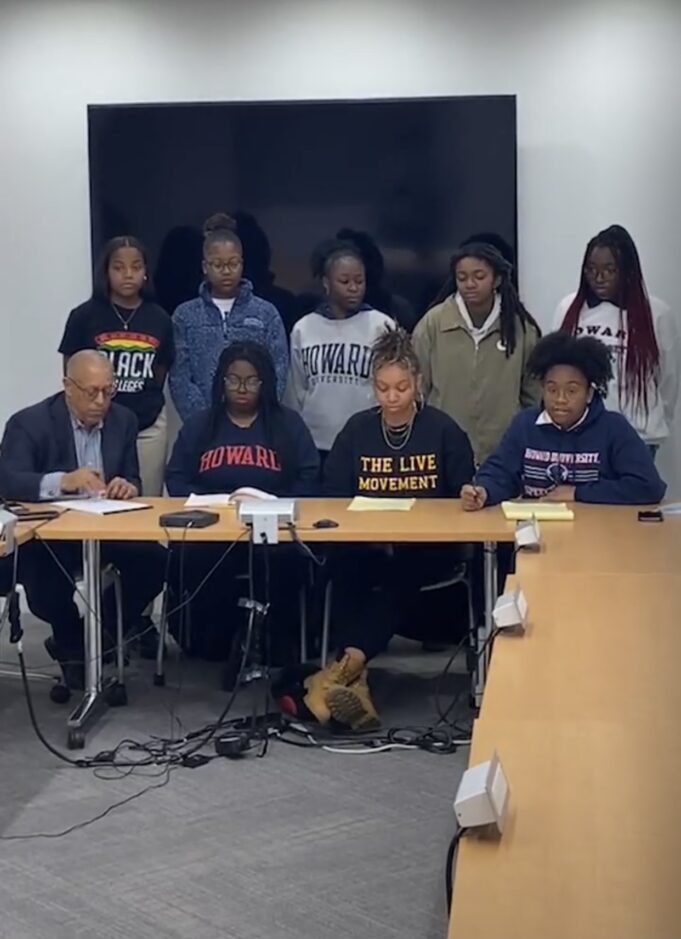WASHINGTON—After 34 days of student sit-ins mainly over housing conditions the tent-city encampment—one of the longest protests in school history—has come down at the Howard University Blackburn Center. In mid-October, students initially raised concerns over poor housing conditions and covid testing. They also called for the reinstatement of student, faculty, and alumni members to the Board of Trustees. In protest, a band of students occupied the Blackburn Center and refused to leave.

On Monday morning, Nov. 15, attorney Donald Temple, a Howard alumnus and former trustee, and a cadre of students who had been occupying the campus, made an announcement. “After 33 days of student struggle, we have reached an agreement with the administration,” student Channing Hill told this writer in an exclusive interview for WPFW-FM’s “Monday Morning QB.”
“We have done what we set out to do, increased local safety for students, health for students. We have accomplished more accountability in our university, transparency. We want to thank all the community for supporting us, alumni and faculty, our parents, and of course, Mr. Temple for supporting us and helping us throughout the entire process.”
Students demanded an in-person town hall with Howard’s president and other officials, the permanent reinstatement of student, alumni and faculty affiliate positions that are being removed from the school’s board of trustees, a meeting with university leaders about housing and legal, disciplinary and academic immunity for protesters.
“Howard University is pleased to announce we have come to an agreement with the students who occupied Blackburn,” the school said in a statement. Specific details of the agreement were not revealed, though university President Dr. Wayne A.l. Frederick praised the solution. “The health and well-being of our students is the most important part of my job as president. As I have said before, even one issue in one of our dormitories is too many, and we will continue to remain vigilant in our pledge to maintain safe and high-end housing.”
Students had complained of vermin and mold infestations in some university housing facilities. In fact, just hours before the students and the university announced they had reached an agreement, university officials confirmed the school had responded to an embarrassing flood on the fourth floor of College Hall South, a student residence hall.
Among other hazards from the flooding, the school officials said they were working to prevent conditions that could cause mold. Persistent mold in residence halls is one of the many complaints voiced by students protesting over the last several weeks.
The protests gained national attention and even brought out some of the university’s most famous alumni, such as Debbie Allen who, “checked in” on students who were protesting outside of the Blackburn Center, even though her sister Phylicia Rashad is dean of the School of Fine Arts, and was mainly supportive of the administration.
The Rev. Jesse Jackson, and the Rev. William Barber II and Martin Luther King III publicly supported the students. The Rev. Jackson was even hospitalized briefly after suffering a fall on campus attending a meeting to mediate the situation with students and the university administration.
Student activists and civil rights leaders say the controversy is indicative of a widespread issue with crumbling buildings on old HBCU campuses that are often underfunded compared to predominately White institutions.
“The students courageously journeyed on a path toward greater university accountability and transparency and public safety,” Mr. Temple said in an interview.
In a video statement, university President Frederick called the agreement “a welcome development, and a necessary end to a challenging few weeks for everyone involved.”

Mason Calhoun, one of the freshmen who joined the protests, told “Dcist” that at least three of their demands were met. But a fourth demand: the reinstatement of students, faculty, and alumni to the Board of Trustees is “still in limbo because there are external things like litigation going on that we don’t really have too much control over as students.”
Student Channing Hill was emphatic about her own graduation in two years. “Does the prospect of being a graduate in 2023, mean that the students were granted amnesty?” we asked. “Well, we can’t answer that question for legal reasons,” attorney Temple interjected. “As this young lady said, she’s expecting to graduate and we’re expecting to see you at her graduation maybe.”
While not offering details on what the next steps will be, Dr. Frederick said he will continue to “work collaboratively” to build a culture where the concerns of everyone are heard. He said he would share details “soon on our ideas that will address concerns and build a culture where all are heard.”













